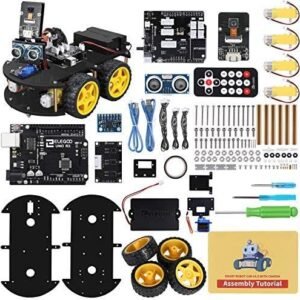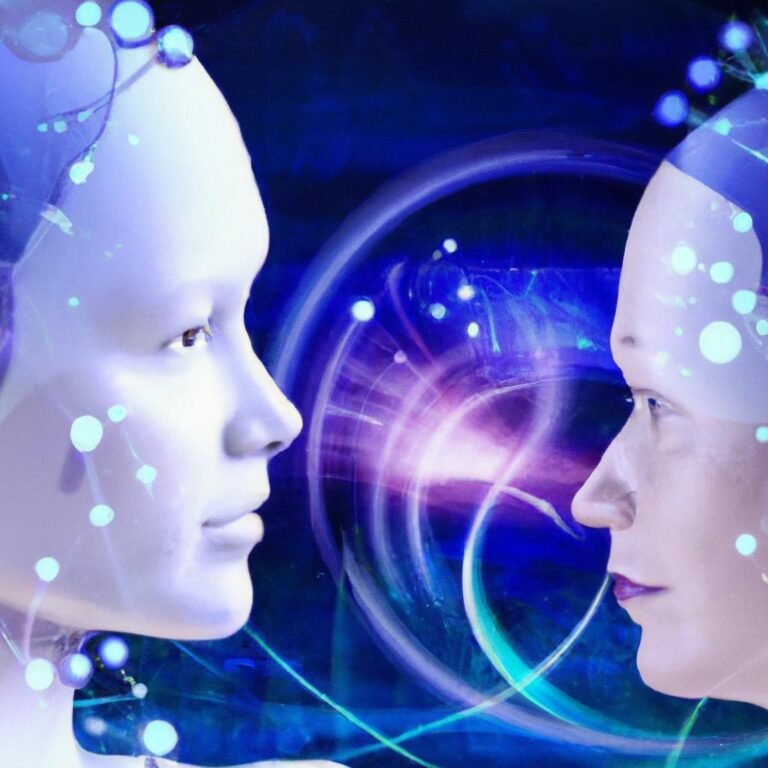As global populations continue to age at an unprecedented rate, the challenges associated with elderly care are becoming increasingly complex. Families are often stretched thin, faced with the need to provide emotional support and physical assistance to aging loved ones while juggling their own commitments. In this context, innovative solutions are essential to improve the quality of care and enrich the lives of seniors. Enter AI-powered social robots—a groundbreaking development that promises to revolutionize elderly care. These advanced machines are not just about automation; they are designed to offer companionship, support, and even cognitive engagement, bridging the gap between technology and human interaction. In this article, we will explore how these intelligent companions are enhancing elderly care, improving overall well-being, and reshaping the landscape of geriatric support. Join us as we delve into the transformative potential of AI-powered social robots and their vital role in creating a more compassionate and connected world for our seniors.
Table of Contents
- The Benefits of AI-Powered Social Robots in Elderly Care
- Integrating Social Robots into Daily Care Routines
- Addressing Privacy and Ethical Concerns in AI-Enhanced Elderly Care
- Future Trends in AI and Robotics for Aging Populations
- To Wrap It Up
The Benefits of AI-Powered Social Robots in Elderly Care
The integration of AI-powered social robots into elderly care presents a transformative approach to enhancing the quality of life for seniors. These sophisticated machines are designed to provide emotional support, companionship, and assistance, thereby addressing some of the most pressing challenges faced by the elderly and their caregivers. By leveraging natural language processing and machine learning, social robots can engage in meaningful conversations, recognize emotions, and adapt to individual preferences, creating a more personalized care experience. With features like medication reminders, health monitoring, and mobility assistance, these robots allow elderly individuals to maintain independence while ensuring their well-being.
Moreover, AI-powered social robots contribute to reducing feelings of loneliness and isolation among seniors, a common issue that can lead to serious health concerns. These robots can facilitate social interactions, enabling seniors to connect with family members and friends through video calls and messaging. The integration of robotic companions also has the potential to deliver cognitive engagement through games and interactive activities, which can help improve memory and cognitive function. The following table highlights key benefits of AI-powered social robots in elderly care:
| Benefit | Description |
|---|---|
| Emotional Support | Provides companionship and alleviates loneliness. |
| Health Monitoring | Tracks vital signs and reminds users of medications. |
| Cognitive Engagement | Offers games and activities to stimulate brain function. |
| Accessibility to Services | Facilitates communication with caregivers and healthcare providers. |
Integrating Social Robots into Daily Care Routines
Social robots are revolutionizing the way caregivers interact with the elderly by seamlessly integrating into their daily routines. These intelligent companions are designed to provide assistance in various aspects of life, from monitoring health to enhancing emotional well-being. By utilizing advanced AI algorithms, these robots can learn individual preferences and adjust their behaviors accordingly. For instance, they can remind users about medication schedules, facilitate communication with family members, or even engage in cognitive games that promote mental agility.
Moreover, the presence of social robots can significantly improve the emotional landscape for seniors, addressing feelings of loneliness and isolation. Their interactive features allow them to engage in meaningful conversations, share stories, or prompt hobbies that stimulate creativity. Implementing these robots also supports caregivers by freeing them up to focus on more complex care tasks. To illustrate the impact of social robots in daily routines, consider the following table showcasing key benefits:
| Benefit | Description |
|---|---|
| Medication Reminders | Automated alerts for timely medication intake. |
| Companionship | Consistent interaction to reduce feelings of loneliness. |
| Cognitive Stimulation | Interactive games to enhance cognitive function. |
| Emergency Assistance | Immediate contact with caregivers or emergency services. |
Addressing Privacy and Ethical Concerns in AI-Enhanced Elderly Care
As AI-powered social robots extend their reach in elderly care, it is essential to address the privacy and ethical concerns that accompany this technological integration. Maintaining the confidentiality and security of personal data is paramount, particularly when sensitive information such as health records and daily activities are involved. Key measures to ensure data protection include:
- Data Encryption: Utilizing advanced encryption techniques to safeguard personal information.
- Anonymization: Ensuring that data is anonymized whenever possible to protect individual identities.
- Transparent Policies: Informing users and their families about data collection practices and consent requirements.
Moreover, ethical considerations must guide the deployment of these technologies. The use of AI should be grounded in principles that promote fairness, accountability, and inclusivity. It’s crucial to engage stakeholders, including caregivers, families, and the elderly, in discussions about the design and operation of these robots. Essential considerations include:
| Ethical Consideration | Description |
|---|---|
| Informed Consent | Ensuring all users understand how their data will be used. |
| Non-Discrimination | Preventing biases in AI algorithms that may affect care quality. |
| Human Oversight | Involving human caregivers in the decision-making loop. |
Future Trends in AI and Robotics for Aging Populations
The future of elderly care is poised for a significant transformation with the integration of AI technologies and robotics. These innovations are set to reshape how society supports its aging population, addressing both physical and emotional needs. With AI-driven analytics, personalized care plans can be developed to monitor health metrics and adapt care protocols proactively. Key advancements expected in this field include:
- Predictive Health Monitoring: Smart devices capable of recognizing changes in a resident’s health and alerting caregivers.
- Enhanced Communication Tools: Robots equipped with natural language processing to facilitate engaging conversations and reduce feelings of loneliness.
- Companion Robotics: Social robots designed to provide companionship, improving mental well-being and social interaction among the elderly.
Moreover, collaboration between healthcare professionals, robotics engineers, and AI specialists is essential to optimize these technologies for real-world applications. As the demand for elderly care increases, integrating AI and robotics can lead to improved efficiency and quality of life. Consider the following table capturing potential applications:
| Application | Description | Benefit |
|---|---|---|
| Medication Management | Automated reminders and dispensing units | Improved adherence to prescriptions |
| Fall Detection Systems | Sensors and AI algorithms to detect falls | Quick emergency response |
| Social Engagement Features | Virtual reality and gaming platforms for interaction | Enhanced cognitive stimulation |
To Wrap It Up
the integration of AI-powered social robots into elderly care represents a pivotal advancement in enhancing the quality of life for seniors. These innovative technologies not only offer companionship and emotional support but also provide practical assistance, fostering greater independence for older adults. As we continue to navigate the challenges posed by an aging population, the role of these robots will undoubtedly expand, presenting new opportunities for caregivers and healthcare providers alike.
As we stand on the brink of this technological evolution, it is essential to approach the implementation of AI-powered robots with a thoughtful mindset—balancing innovation with the human touch that is essential in elder care. By harnessing the capabilities of these intelligent machines while prioritizing ethical considerations and personalization, we can create a holistic approach that truly enriches the lives of our elderly population.
As we move forward, ongoing research and collaboration among technologists, healthcare professionals, and families will be key in shaping a future where AI and human connection work hand in hand. Together, we can embrace this exciting journey, ensuring that our seniors are not only cared for but also cherished, respected, and engaged in their golden years. Thank you for joining us in exploring this vital topic—let’s continue the conversation about how technology can, and should, enhance the quality of life for those who have so much to offer.





